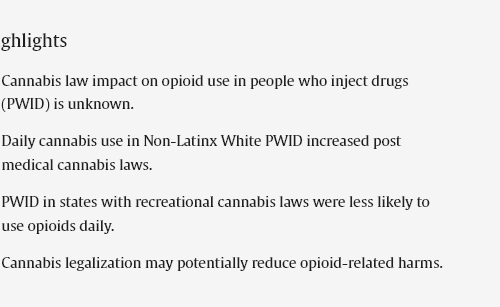Drug Policy Question of the Week – 10-27-10
As answered by Mary Jane Borden, Editor of Drug War Facts for the Drug Truth Network on 10-27-10. http://www.drugtruth.net/cms/node/3120
Question of the Week: Do marijuana users need treatment?
First, with respect to life saving treatment, marijuana is fairly safe. According to the World Health Organization in 1998,
“There are no confirmed cases of human deaths from cannabis poisoning in the world medical literature.”
Further, Drug Abuse Warning Network data showed no emergency room marijuana deaths from 2004 to 2008.
The National Institute of Drug Abuse in its December 2007 edition of Addiction Science and Clinical Practice stated,
“Marijuana produces dependence less readily than most other illicit drugs. Some 9 percent of those who try marijuana develop dependence compared to, for example, 15 percent of people who try cocaine and 24 percent of those who try heroin.” (p. 5)
This 9 percent translates into around 9.4 million individuals based on the 104 million Americans who in 2009 were believed to have ever tried marijuana.
NIDA estimates that around 4.3 percent of Americans have been dependent on marijuana, as defined in the American Psychiatric Association’s Diagnostic and Statistical Manual of Mental Disorders.
Describing withdrawal, the NIDA report noted that, marijuana withdrawal
“does not appear to include major medical or psychiatric consequences and may be considered mild compared with heroin and severe alcohol withdrawal syndromes.” (p. 10)
Ironically, one treatment showing great promise for marijuana withdrawal is its own active ingredient, THC. The NIDA report concluded that,
“THC reduced craving and ratings of anxiety, feelings of misery, difficulty sleeping, and chills. … These findings were replicated in an outpatient study, which found that moderate oral dosage of THC (10 mg, three times daily) suppressed many marijuana withdrawal symptoms and that a higher dosage (30 mg, three times daily) almost completely abolished [them].” (p. 11)
These facts and others like them can be found in the Treatment and Marijuana chapters of Drug War Facts at www.drugwarfacts.org.
Questions concerning these or other facts concerning drug policy can be e-mailed to [email protected]
As answered by Mary Jane Borden, Editor of Drug War Facts for the Drug Truth Network on 10-20-10. http://www.drugtruth.net/cms/node/3111
Question of the Week: How accurate is government data?
This is an interesting question since we covered drug use and arrest estimates during the last few Drug Truth Network shows. While government statisticians may attempt to calculate best estimates and even though their work may represent the only numbers on a subject, several reports suggest that readers should be mindful of data limitations and skeptical about results.
Recall that the 2009 National Survey on Drug Use and Health contained the caveat,
“2002 and later data should not be compared with 2001 and earlier data from the survey series to assess changes over time.” (p. 8 )
The recent “Reducing Drug Trafficking Revenues and Violence in Mexico” report from the RAND Corporation used the following quote from 2006 National Drug Control Strategy published by the Office of National Drug Control Policy as an example of questionable data:
“Mexican traffickers receive more than $13.8 billion in revenue from illicit-drug sales to the United States; 61 percent of that revenue, or $8.5 billion, is directly tied to marijuana export sales.” (p. 36)
But after analyzing these numbers, RAND researchers concluded,
“We are not aware of any publicly available documents that provide empirical support for these figures. Not only does this make it difficult to assess whether the figures are correct; it also makes it difficult to understand what these figures actually cover.” (p. 28)
A 2003 report called the Numbers Game from the Transnational Institute summarized one of the main problems with data related to illegal drugs,
“the obstacles to statistical data collection are daunting [because] The illegal nature of the industry precludes direct measurement.” (p. 2)
The report also noted,
“Morals and ideology tend to play an extremely strong role in those debates. For these reasons, all illicit drug data can be manipulated for political gain.” (p. 3)
These facts and others like them can be found in the Drug Usage and U.S. Policy chapters of Drug War Facts at http://www.drugwarfacts.org.
Questions concerning these or other facts concerning drug policy can be e-mailed to [email protected]
Do marijuana users need treatment?


